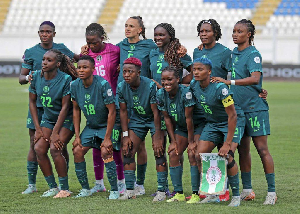Business News of Monday, 14 July 2025
Source: www.thenationonlineng.net
Africa needs $200b to meet energy, climate goals
Nigeria and other African countries face dual challenge of expanding energy access and transitioning to cleaner sources, but more than $200 billion a year needs to be invested if they are to achieve their energy and climate-related goals by 2030.
The International Energy Agency (IEA’s) World Energy Investment 2024 report, which made this known, however, said current levels of investment are well below this figure, with some $110 billion invested across the continent in 2024 – equivalent to only 1.2 per cent of Africa’s Gross Domestic Product (GDP).
The report, which was accessed by The Nation, over the weekend, stated that the provision of reliable power supplies is a critical issue for Africa’s future, pointing out that around 600 million people across the continent currently lack access to electricity, which continues to hinder development in agriculture, industry, education, and healthcare.
The report lamented the continent’s low investor penetration, noting that despite its potential, Africa attracts relatively small amounts of energy investment.
Citing the International Renewable Energy Agency (IRENA), the report said, for instance, that of the $2.8 trillion invested globally in renewables between 2000 and 2020, only two per cent went to Africa.
Also, from 2000 to 2019, Africa attracted about $110 billion in public commitments for energy projects, of which $64 billion went into renewables.
According to the report, funding came from bilateral donors like China and the European Union (EU), multilateral organisations such as the World Bank and African Development Bank (AfDB), and Development Finance Institutions (DFIs) including KfW and Proparco.
This report, which explored several key energy markets with contrasting outcomes, however, said Nigeria’s semi-privatised energy market since 2013, has seen mixed results.
It noted that despite financial struggles among Electricity Distribution Companies (DisCos), Nigeria remains a top performer in terms of attracting funding.
The report said Nigeria’s electricity sector reflects its economic position on the continent, where it has the fourth largest economy by GDP, behind South Africa, Egypt and Algeria. (It had been the continent’s largest economy as recently as 2022, but a devaluation of the naira pushed it down the rankings).
In generating terms, Nigeria’s electricity sector is also the fourth-largest, at 14.5GW as of 2024, according to IRENA, behind the continent’s three largest economies.
The sector, according to the report, has been growing more slowly than in many other large African countries, hampered by corruption and problems stemming from the unbundling and partial privatisation of the sector in 2013.
“From 2020- 24, some 1.3GW of capacity was added to the grid, representing an average annual growth rate of 2.1 per cent.”
That is below the continent-wide average of 2.5 per cent and far behind the pace set by Ethiopia of 7.4 per cent, the report stated
Also, the report said Egypt, despite political upheaval since 2011, has expanded its renewable sector with strong support from Gulf-based funding, particularly for large-scale green hydrogen-linked projects.
The report, however, said South Africa is the continent’s strongest performer in investment terms, with major surges in solar investment following deregulation in 2023. ƒ
Morocco also attracts strong investment but continues to rely significantly on coal, while Kenya is the continent’s geothermal leader, with a relatively independent course due to abundant domestic resources.
The report identified a number of inter-related issues holding back investment, such as rising interest rates that have pushed up the cost of debt in recent years, making it more difficult to fund capital-intensive energy projects.
It also said traditional western funding sources are also reluctant to fund projects involving fossil fuels, adding that most African countries also have low sovereign debt ratings, which makes accessing international investment more expensive.
“As of early 2025, Botswana and Mauritius were the only African countries to have investment grade ratings from any of the main credit rating agencies.
“Botswana is rated BBB+ by S&P and A3 by Moody’s, while Mauritius is rated BBB- by S&P and Baa3 by Moody’s,” it stated
Describing Africa as a continent of unmet demand and uneven access, the report said Africa holds enormous potential for electricity sector growth, both in underserved countries where access remains low, and in more developed markets where demand frequently exceeds supply, leading to load shedding.
Looking ahead, the report stated that as Africa moves toward its 2030 energy and climate goals, stakeholders should focus on replicating successful models from leading markets including the public-private partnership structures (like BOO and BOT) used in South Africa and Egypt, and targeted off grid private sector funding seen in Kenya.
Private investment into electricity generating projects around Africa totaled around $68.7 billion from 2000-2023, according to the World Bank’s Private Participation in Infrastructure (PPI) Projects Database.
The vast majority of that was channelled through two Public[1]Private Partnership (PPP) structures: Build, Own and Operate (BOO) and Build, Operate and Transfer (BOT). Between them, these two models were used for more than 90 per cent of private investments.
However, BOO contracts have been the more common, with $45.3 billion of deals over the period, or 66 per cent of the overall market. BOT contracts have been worth $16.8 billion since 2000, or 25 per cent of the total.
The report further said markets with emerging investment potential such as Zambia, Ghana, and Mozambique are gaining traction, especially in renewable energy and geothermal development, supported by growing public sector backing and auction-led procurement frameworks.
“The role of blended finance, carbon credit trading, and structured green bond programmes will be critical to unlocking private capital at scale.
“As climate-related funding priorities gain momentum globally, Africa’s ability to align with these trends — while addressing local risk and regulatory bottlenecks will define the next phase of investment,” the report said.












